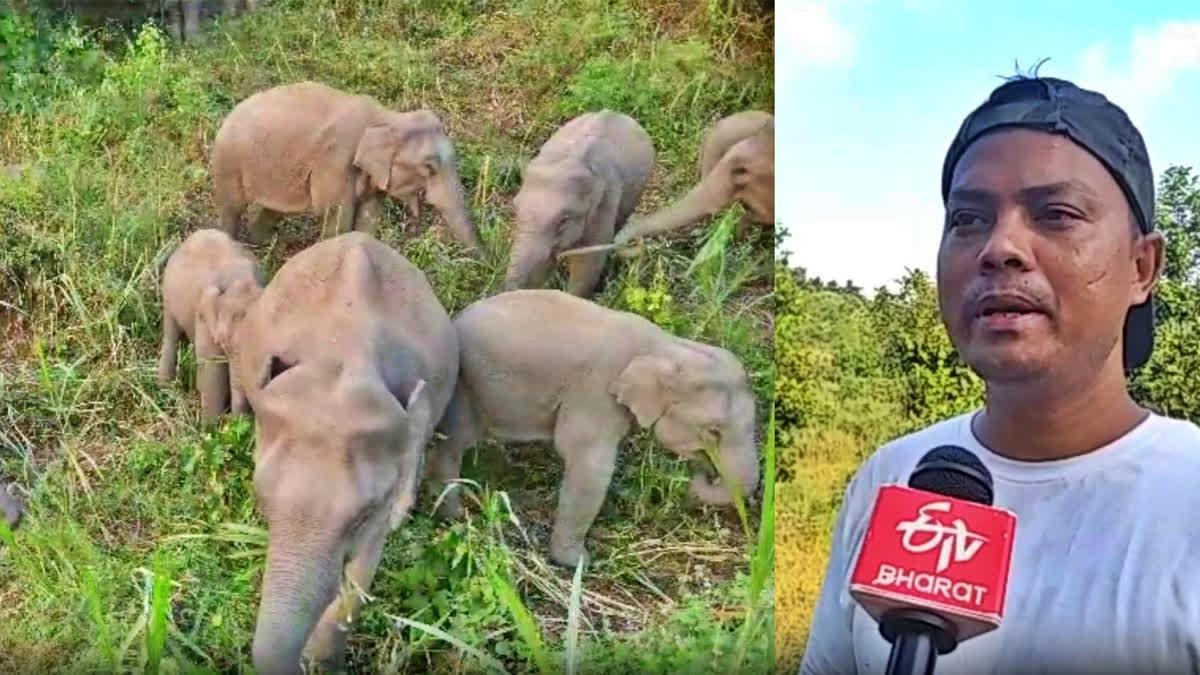Nagaon (Assam): In the heart of Assam, where the land thrives with its majestic elephant population, a persistent conflict between humans and these gentle giants has long prevailed. Especially during the harvest season and the monsoon floods, elephants frequently venture into human settlements and paddy fields, in search of food. This recurring struggle over the years has led to significant losses in crops, homes, and even human lives.
However, amidst this relentless battle between man and elephant, Hati Bondhu, a prominent nature-loving organisation based in Nagaon, has come up with an innovative solution to limit episodes of human-elephant conflict. The NGO has come up with an ingenious idea of cultivating Napier grass and other forest fruits that elephants love in the plains adjacent to areas inhabited by these tuskers.
Operating under the patronage of Pradeep Kumar Bhuyan, a devoted nature enthusiast from Guwahati, Hati Bondhu is being led on the ground by Binod Dulu Bora. Thanks to the tireless efforts of the NGO's members, herds of elephants gradually have begun to visit around 130 acres of land teeming with Napier grass, providing them with a wholesome source of food.
This creative approach has successfully curtailed the instances of elephants encroaching on the farmers' paddy fields, significantly reducing the losses of crops and valuables. Speaking to ETV Bharat, Bora said it was in 2018 they realised that there was a huge swathe of non-cultivated land which elephants used as a corridor.
"We began planting Napier grass, jackfruit and elephant apple on the land the same year. We have been successful in containing 200 of these wild elephants to this land by providing them with their food so that they do not intrude into human settlements and destroy paddy lands," he said.
Bora said they have provided the elephants food, water and security on land that was once their corridor to enter human settlements. "Napier grass is very nutritious. For the last 20 days, the elephants have stayed here and not moved to human settlements. Once they consume all the grass, we will allow them to enter 200 bighas of paddy fields that we have cultivated next to the Napier grass fields. We will ensure farmers get enough time to harvest their crops and elephants stay here during the time. We have ensured elephants stay in this area for around a month," he said.
Hati Bondhu received praise and recognition from various segments of society for its unwavering commitment to preventing human-elephant conflicts. Over the past few days, Bora's team, with the support of his wife, Meghana Mayur Hazarika, has managed to keep the wild elephants engaged in the lush downhills of the hilly region by cultivating Napier grass, one of the elephants' favorite foods. A significant portion of the cultivated Napier grass on the hills near Ronghang village, at the Nagaon-Karbi Anglong border, has been devoured by the wild elephants.
Bora and his wife vigilantly monitor the elephants as they feast on the cultivated food. They ensure that the farmers can complete their crop harvesting while the elephants are occupied with the Napier grass cultivation, thus fostering a harmonious coexistence between humans and elephants.
Also read:



